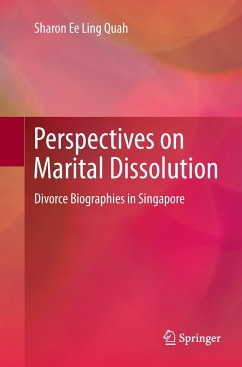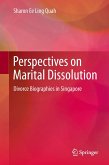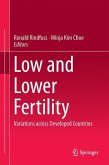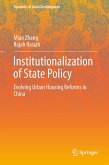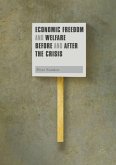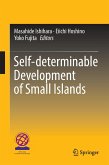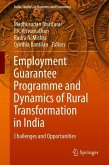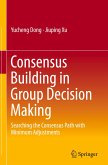This book presents a sociological account on marital dissolution that engages and extends theorisations on individualisation and the contemporary organisation of personal relationships to discuss how the experience of divorce might not be all debilitating but on the contrary, could provide opportunities for productivity, self-responsibility and relationship formation. Using Singaporean divorcees' narrative accounts, the book explores how divorcees shape and construct what the author refers to as, a divorce biography , to end their unsatisfying marriages, cope with the crisis, negotiate the associated risks, organise post-divorce personal communities and make future plans. It uncovers how divorcees navigate their divorce biographies within the economic, policy and social context they are located in and examines the conditions that facilitate or hinder the pursuit of productivity in different facets of their post-divorce lives. Far from a standard story of divorce, this book presents the diversity and complexity of Singaporean divorce biographies. The research challenges negative discourses associated with divorce and offers a more nuanced perspective by discussing both the precarious and productive aspects of the experience. More importantly, it provides a critical discussion on the limited definition of family prevalent in Singaporean society, and shows how post-divorce family life and practices continue to thrive despite the rupture of marriage.
'The most impressive aspect to the book is the recurring emphasis on divorce as a process. Throughout the text Sharon Quah shows how the journey through divorce is patterned both by the choices each divorcee makes but also by the structural circumstances which frame the choices available. She does this by highlighting the legacy of the marriage and by investigating the ways in which different economic and social constellations - including relations with past and present family members and with friends - encourage or discourage different pathways. The study draws extensively on existing research literature concerned with divorce, and frames the analysis in terms of a wide-ranging examination of theories concerned with individualisation and the place of the personal in late modernity. Quah demonstrates this argument about what she terms 'divorce biographies' very well.' -- Emeritus Professor Graham Allan, Keele University
'This book makes a significant contribution to Sociology and addresses important themes in understanding families around the world. The strongest aspects of the work are: 1. its rich interview material; 2. its consideration of key sociological themes in the East Asian, particularly Singaporean context; 3. its contribution towards understanding the benefits of divorce; 4. its sophisticated consideration of individualisation and community; 5. its clear and readable style.' -- Professor Michael Gilding, Swinburne University of Technology
'This book makes a significant contribution to Sociology and addresses important themes in understanding families around the world. The strongest aspects of the work are: 1. its rich interview material; 2. its consideration of key sociological themes in the East Asian, particularly Singaporean context; 3. its contribution towards understanding the benefits of divorce; 4. its sophisticated consideration of individualisation and community; 5. its clear and readable style.' -- Professor Michael Gilding, Swinburne University of Technology

